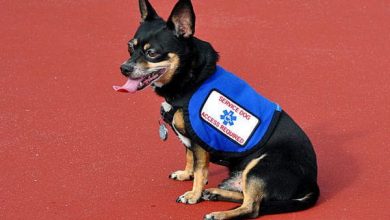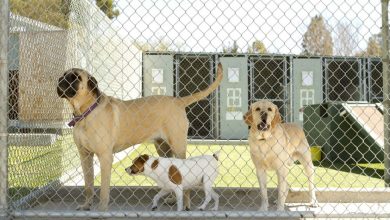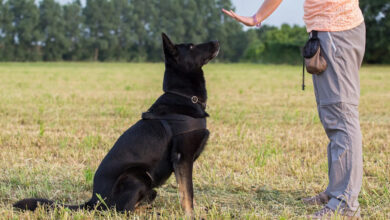What To Do If My Dog Eats Gum

1. Introduction
Gum is a sticky substance that can be found in many homes. While it is not usually dangerous for humans, it can be very dangerous if your dog eats it. In this article we will discuss what to do if your dog eats gum and the potential health risks associated with it.
2. What is Gum?
Gum is a type of confectionery made from a mixture of sugar, starch, flavoring, and other ingredients. It is chewed for its flavor and texture and then disposed of when finished. Gum is often flavored with mint or fruit flavors such as strawberry or cherry.
3. What Are The Health Risks Of Dogs Eating Gum?
Gum can cause serious digestive problems for dogs including bloating, vomiting, diarrhea, and constipation. In addition, some gums contain xylitol which is toxic to dogs and can cause liver failure. If your dog has eaten gum containing xylitol, seek veterinary attention immediately as it could be fatal.
4. How To Tell If Your Dog Has Eaten Gum
If you suspect that your dog has eaten gum, look for signs such as excessive drooling, vomiting or diarrhea, lethargy, or lack of appetite. If you see any of these signs, contact your veterinarian immediately as they may need to induce vomiting to remove the gum from the stomach before it causes any further damage.
5. What To Do If You Suspect Your Dog Has Eaten Gum
If you suspect that your dog has eaten gum, contact your veterinarian immediately as they may need to induce vomiting to remove the gum from the stomach before it causes any further damage. Your vet may also recommend that you feed your dog a bland diet for a few days to help settle their stomach and prevent any further digestive issues caused by the gum.
6. Prevention Is Better Than Cure
The best way to avoid the health risks associated with dogs eating gum is to make sure that they do not have access to it in the first place. This means keeping all types of gum out of reach of pets and making sure that any wrappers are disposed of properly so that they cannot be accessed by curious noses or paws!
7. Common Types Of Gums That Dogs Should Avoid
Xylitol-containing gums should be avoided at all costs as this artificial sweetener is highly toxic to dogs. Other types of gums such as bubblegum and chewing gum should also be kept away from pets as they can cause digestive issues if ingested in large quantities.
8. Additional Tips For Keeping Your Dog Safe From Gum
In addition to keeping all types of gum out of reach of pets, there are some other tips you can follow to keep them safe from gum:
• Always supervise your pet when they are around areas where there may be gum present (e.g., on walks).
• Keep all wrappers securely disposed of so that they cannot be accessed by curious noses or paws!
• Be aware of where children have been playing with their bubblegum or chewing gum and make sure that any discarded pieces are cleared away before allowing your pet near the area again.
9. Conclusion
In conclusion, if you suspect that your dog has eaten gum then contact your veterinarian immediately as they may need to induce vomiting to remove the gum from the stomach before it causes any further damage. Additionally, prevention is always better than cure so make sure that all types of gums are kept out of reach of pets and any wrappers are disposed of securely so that they cannot be accessed by curious noses or paws!
< h 2 > 10 . FAQs About Dogs Eating Gum < / h 2 >
Q: Can my dog get sick if he eats gum?
A: Yes, depending on what type of gum he has eaten he could experience digestive issues such as bloating, vomiting or diarrhea due to the sugar content in some gums or even develop liver failure if he has eaten a xylitol-containing product.
Q: How do I know if my dog has eaten gum?
A: Look for signs such as excessive drooling, vomiting or diarrhea, lethargy, or lack of appetite – if you see any of these signs then contact your veterinarian immediately as they may need to induce vomiting to remove the gum from the stomach before it causes any further damage.
Q: What should I do if I think my dog has eaten gum?
A: Contact your veterinarian immediately as they may need to induce vomiting to remove the gum from the stomach before it causes any further damage – additionally feed your dog a bland diet for a few days afterwards in order to settle their stomach and prevent any further digestive issues caused by the ingestion of the gum.
< h 2 > 11 . Resources < / h 2 >
1 . https://www . petmd . com/dog/emergency/poisoning-toxicity/e_dg_chewing_gum_toxicity_in_dogs
2 . https://vcahospitals . com/know-your-pet/xylitol-poisoning-in-dogs
3 . https://pets . webmd . com/dogs/guide/what-to-do-if-your-dog-eats-gum#1




